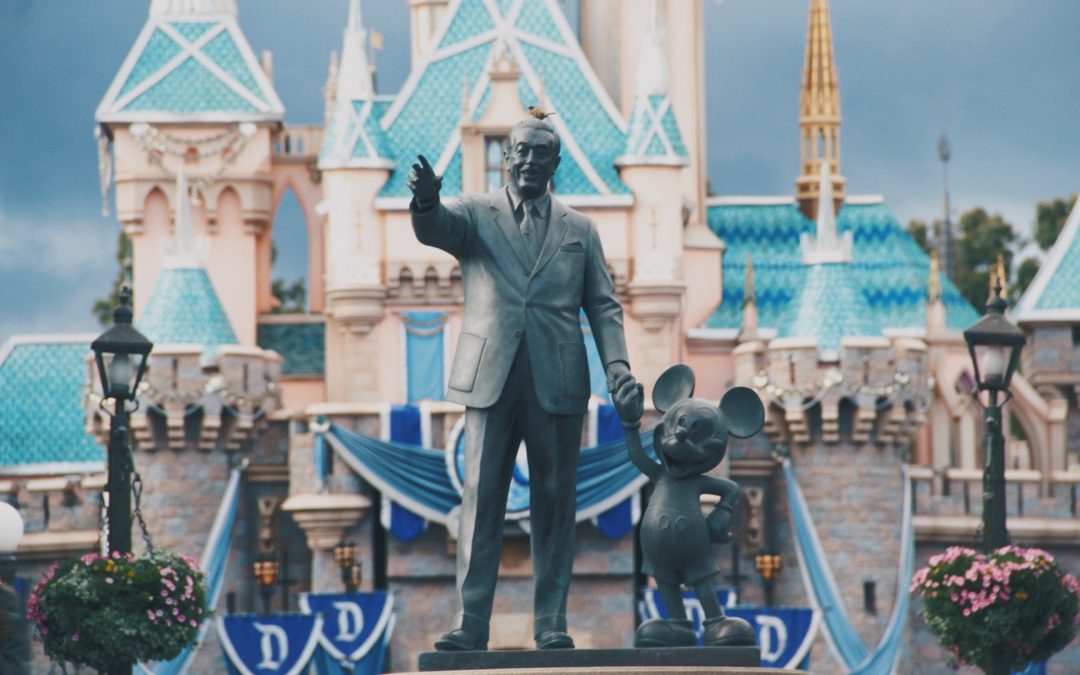By Rev. Craig Statton, CEO, Atherton
Last month we took my 2 ½ year-old granddaughter for her first visit to Disneyland. We spent the weeks before the big day buying the appropriate Disneyland outfits; of course, there were mouse ears for all. We talked about going to the “happiest place on earth” and got excited as we set the agenda, picked the rides, and made sure we had planned the appropriate picture stops. As we entered the park, we set our plan in motion, stopping to get our first picture before we rushed to the first ride. The race was on to beat the crowds. Almost instantly our well-laid plans melted in a puddle of tears. All the adults screeched to a stop as our granddaughter started to cry. She was overwhelmed. There were so many people, so much to see, and everyone was pushing ahead so quickly; it was more than she could understand, and she was scared. It quickly became obvious to all of us: we had to do a re-set.
Dylan Thomas in his playful poem Fern Hilluses the phrase “once below a time” to talk about that season in our childhood when we measure the meaning of our lives by moments and experiences and less by accomplishments. It’s not the check marks on our to-do list which provide a sense of fulfillment, but the experiences of the moment: the sights and sounds, smells and smiles that enrich our lives. When we decided to re-set our expectations and restructured our day around our granddaughter, we were amazed at the wonder that delighted her eyes. Through her joy, we all experienced the magic of Disneyland.
This important principle holds true for the other end of the life spectrum. Many seniors are no longer driven by time and tasks, choosing instead to experience each day as a moment to be valued and enjoyed. Sometimes their attention to issues that seem insignificant to us can be frustrating because these items do not fit our to-do list for the day. But slowing down and living in the moment can open us to special treasures. Especially for the person who struggles with dementia or Alzheimer’s, the collapse of their understanding of time can create panic, confusion, and fear. Kevin Guilfoyle writes about this in his book, A Drive in the Gap. About his own father he writes, “to my dad, I am five years old and also a novelist. I am forty-three years old and also an undergraduate at Norte Dame. I am the assistant media relations director for the Houston Astros and I am not yet old enough to drive. I am a Little League coach in LaGrange, IL and a Little League player in Bethel Park, PA. I also work in advertising. My mother understands me as all of these things too, but understands time as an organizing principle, that I was each of these at a different stage of my life. My father does not. To him I am all these things at once. He lives in an unrelenting present, with no real concept of yesterday or tomorrow.”
This difficult journey can be deeply disappointing and painful for family and friends; but it does not have to be tragic. The memories of yesterday may not be organized appropriately but it is a treasure that they may not be completely lost. These precious moments can be experienced in a new way, most of the time in bits and pieces, but still rich with meaning. Guilfoyle writes of the personal enjoyment he shared with his dad as they reminisced about Micky Mantle whom he had befriended for 10 years. “Boy, what a player” hardly did the friendship justice, but it brought a good feeling and a smile, and made a familiar connection between father and son. Ultimately the relationship may not be as engaging and satisfying as it used to be, however, if we adjust our expectations, being with our loved one becomes a great gift. To sit and talk about the weather, hear part of an oft-repeated story, hum a familiar tune, hold a hand, experience the warmth of the sun together, or provide a comforting presence, is a different, but significant place in the relationship.
We missed Splash Mountainand Star Tours, but we got to see It’s a Small World, ride on the Casey Jr. Circus Train, drive on the Autopiaand float the Jungle Cruise. Captain Hook passed by a couple of time and our granddaughter said he was “funny.” We got pictures and made some memories, but the best part of the day was seeing Disneyland through a child’s eyes. Perhaps one of the important life lessons from both our children and our elders is that this journey of life is sometimes enjoyed the most when we look through someone else’s eyes, take our time, reset our plans, and embrace the moment instead of checking off the box.


Recent Comments